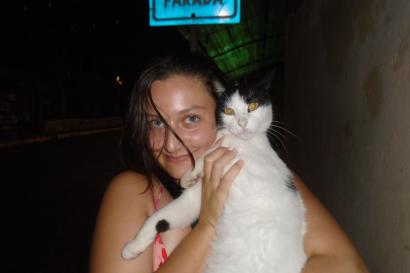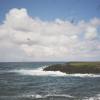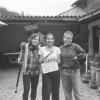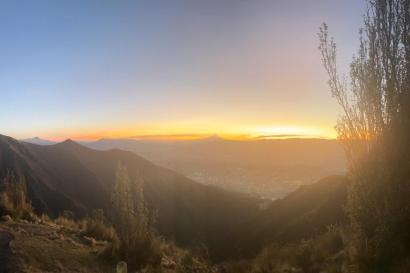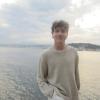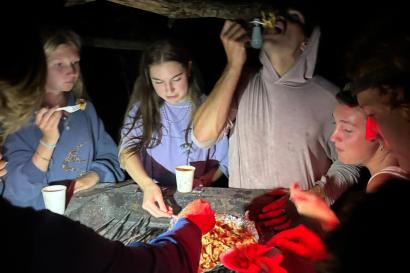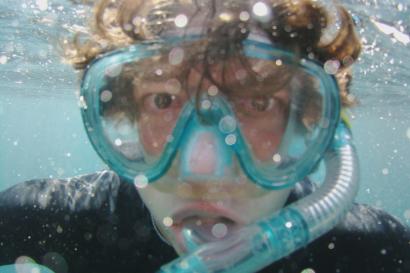From Galileo to the Scopes Monkey Trial of 1925, religion has always been at war with science. Scopes’s prosecutor William Jennings Bryan mythologized the science teacher, telling the beautifully tragic story that evil sorcerer Charles Darwin had killed God. In my story, Darwin reintroduced us. I do believe that evolution killed someone’s God — the one whose image we were made in, at least. The vengeful and selfish one, the one that decides which things are worth living, conquering, dominating. Cynical intellectuals and pearl-clutching zealots alike agree that “miracle” is not a word that can be used in the same breath as “science,” but to me, it’s scripture. All of it is holy. The logarithms and the crown-shyness, the whole of it.
My favorite screenwriting professor, Irving Belateche, tells me that storytelling is the study of change. So is evolution. I spend my days asking “why” and “how” and exploring with my friends until we come to a plausible solution. In LA, it was on set, and here it’s in the field. I play pretend and I play with dirt. It’s great. In the marriage of the artist and the scientist, we vow to honor our imagination. Our shared existence is faith-based practice.
Every scientific journal and every flycatcher sings the same song: we need each other, we need each other, we need each other. I like to listen to the melody. I like the absence of pitch just as much — holding a bird to your ear and hearing its heart beat so fast it sounds like the wind you’d prayed for in the heat. I can’t say I’ve held many living things in my life beyond cats and lovers, but now I can say I’ve looked a Darwin’s finch in the eye while bleeding it, doing every silly thing I can to let it know I’m not there to hurt it while making the process as quick and painless as I can. I hope that, even though it’ll never know this, what my classmates and I did will one day help their ability to survive as a species.
On this iteration of the hero’s journey, I’m about to return with the elixir. If all goes well, I’ll soon become the master of both figurative worlds and then the credits will roll. Until then, what do selective pressures do to a species when it’s far from home? Existing literature on island syndrome would tell us that it collectively stabilizes a population. I think they’re onto something, and I think I feel like more of myself than I have in all of my life. In part, this is because I’ve seen visions of myself everywhere. I befriended a chatty little girl who was overly eager and extremely curious. She was obsessed with cats and fascinated by the world, and when I looked at her, I couldn’t help but think of a younger Anya, inventing stories sitting alone at recess. I’ve received a love I thought died with my grandmother from a host family that wasn’t even mine, once again having someone to give bendiciones to. I’ve gained three sisters, a brother, three mothers, two grandparents, two fathers, and a beautiful stillness I’ve never known.
Things are coming to a close, and I can’t even begin to wrap my head around that. When I told my little friend I had to leave for dinner, she told me “there are a lot of feelings in my house.” I feel the same. And after spending hours in the field studying plants, I can feel it all a little more closely than I otherwise could. I have a renewed appreciation for everything around me, and it is everywhere. What a gift to have this many feelings in such a big, beautiful house.
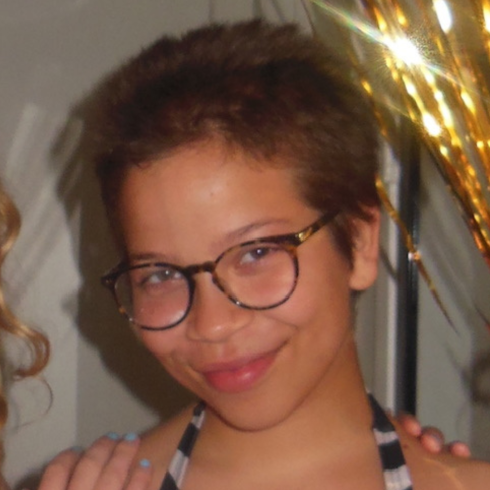
Anya Jiménez
Anya Jiménez is a Screenwriting major with a minor in Environmental Studies. She got scuba certified before learning how to drive, but as a New Yorker, she never thought she’d need a license. Anya was wrong and pays for this act of hubris daily.
